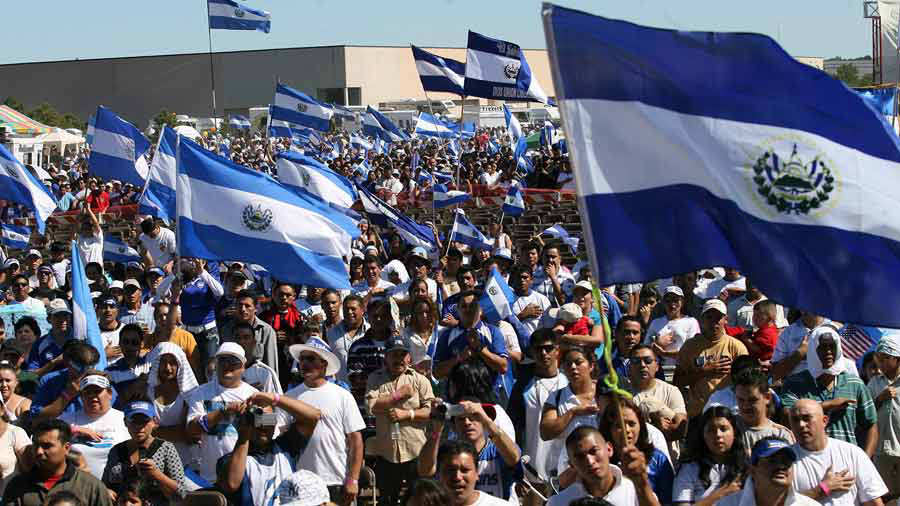
The presidency says it is “unconstitutional” because the requirements required by the Assembly to prove its roots in El Salvador “are very restrictive”.
President Nayib Bukele claimed that the decree approved by the Assembly For Salvadorans living abroad, running as a candidate in popular elections is “unconstitutional” in terms of the criteria established to prove their roots in the locality they want to represent in the elections.
“Such criteria are exclusive to Salvadorans living abroad and who fail to verify any of them, when in reality none of these criteria alludes to substantial issues for the exercise of that decree,” alludes to Bukele.
In the legislative decree, the parliamentarians placed various requirements for Salvadorans living abroad and want to run for public office, such as mayors, deputies or the President of the Republic.
You may be interested in: Voting abroad in 2021 can cost up to $ 40 million
In addition to all that the Supreme Electoral Tribunal requires of interested parties, for citizens living abroad, it is added to prove “that the father, mother, husband or minor children live in the municipality and are dependent on the applicant, attaching a copy of the documents unique identity card of any of the first three or a copy of the birth certificates of any of their children ”.
You are also required to prove that you have assets in that municipality by attaching an extract certificate issued by the National Registration Center or a certified photocopy of the respective public deed, or the solvency of the tax payment and municipal installments of the property registered in your name, issued in the year in which you apply for registration, among other requirements.
This was because the Assembly was waiting to comply with a resolution of the Constitutional Chamber ordering it to legislate so that Salvadorans living abroad could participate as candidates in elections.
You may be interested in: Residents abroad can be candidates for popularly elected positions in 2024
On December 23, 2016, the constitutional court ruled that the vote of compatriots living abroad and participating as candidates in electoral processes is meritorious, so it was necessary to make changes to current regulations to allow the exercise of voting rights.
Bukele notes that the Court’s ruling on this subject explains that it was established that the requirements for citizens to register as candidates must be “reasonable, given their particular circumstance which places them on a different plane, with Salvadorans living in the country. , but, on the other hand, that they do not unjustifiably restrict the exercise of that right ‘.
ARENA MP Mauricio Ernesto Vargas explained that the government “is not interested in arraigo, for a simple and simple reason, which is electoral, they can move from outside to other specific municipalities that can carry a certain number of voters because they cannot they need to show roots ”.
In this regard, in the veto, the Presidency claims that “there are groups of Salvadorans living abroad and who will not meet the above criteria, either because they emigrated with their entire family group or because they were born abroad.”
While, for the executive director of Acción Ciudadana, Eduardo Escobar, President Bukele should not have vetoed it as “unconstitutional”. Escobar analyzes it as a difference of opinion between the Executive and the Assembly, which should have resulted in a veto because of the “inconvenience”.
“This could lead us to what the Chamber ordered the President (Bukele) not to make an arbitrary and irresponsible use of the veto as unconstitutional, he is doing it to stop the legislative process, if he vetoed it out of inconveniences, the Assembly would overcome it so that it would enter into force “, said Escobar.
You may be interested in: The Government and the Assembly leave the vote abroad in the language
However, it shares in some ways Bukele’s statements about the “restrictive” form of criteria that the Assembly requires for those running as candidates in popular elections.
“What the Presidency is right about is that the legislature has been very restrictive in terms of how to check the roots, in the case of countries that allow applications from abroad, they propose as a form of roots who have lived in a certain district and a prove that the fact that he had his last residence in that district, whether he was born or had his residence, is another way of proving his roots, there is a reason in the Executive to emphasize that these forms are very restrictive “, stressed Escobar .
But he warns that “this does not give him a reason to lift the veto as unconstitutional.”
Bukele claims that there are also vices of inequality in the legislative decree, because it affects the economic capacity of the person concerned to run for office, wanting to prove that he has properties in the constituency he aspires to represent.
In this regard, Escobar emphasizes that they are not necessarily large properties or real estate.
“Proof of rooting in a property or company does not link the right to vote to economic capacity, as the president does wrong, because I can have a low value house and with that I check my roots, in the end it was a humble house and I lived there for a while, it is not a matter of economic capacity “, explained Escobar.